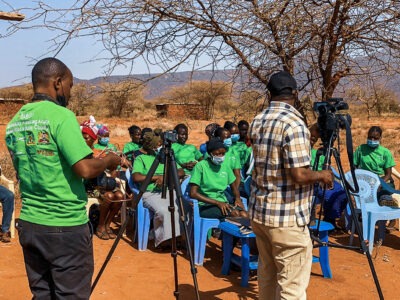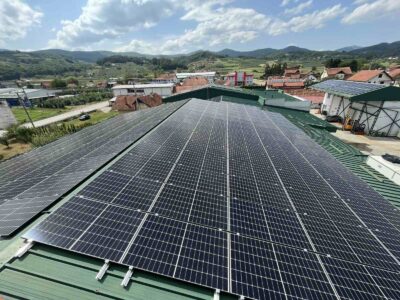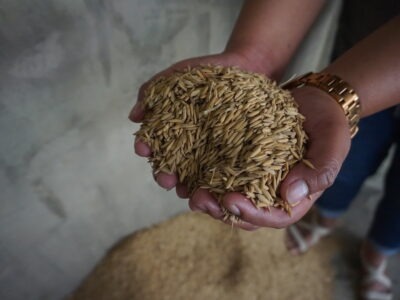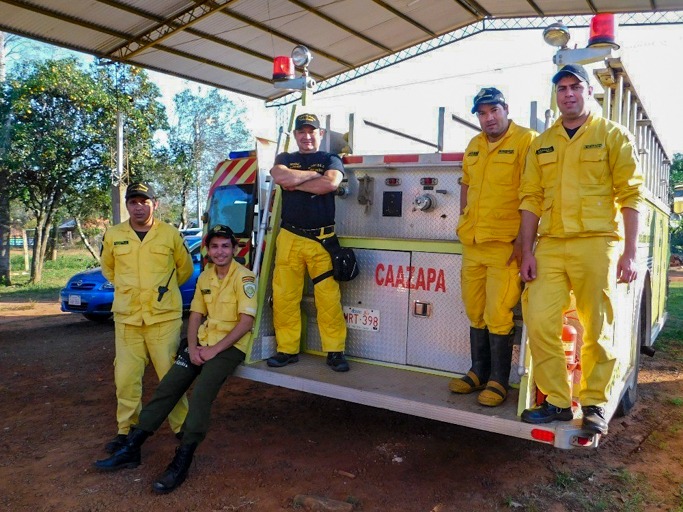
Alcides Aguilera is a teacher of physical education and the Guarani language in the city of Caazapá, but he is much better known in the community as commander of the Caazapá Volunteer Fire Department. It took him a year to become a firefighter and later a combatant. Now, he is captain of the squad.
The Caazapá Volunteer Fire Department is the only official functioning fire station to serve 185,000 inhabitants covering the department’s 9,500 square kilometers. Through the United States Agency for International Development (USAID) and ACDI/VOCA’s Promoting Risk and Emergency Preparedness (PREP) program, Captain Alcides’s squad became the Forest Firefighters Rescue Brigade of the local Municipal Council for Risk Management and Reduction.
Captain Alcides is well aware of the emergencies affecting the population. Forest fires are extremely common in Caazapá, which is home to a large reforestation area and one of the largest national parks in the country.
“With the training offered by PREP, we felt that our memory of firefighting techniques and skills was refreshed. We updated our knowledge, and newly trained volunteers joined our group.” — Captain Alcides Aguilera
Training is fundamental for firefighters, given the life-threatening dangers they face on the job. Of the 35 volunteers that make up the squad, only 15 had been trained in forest fire management before PREP. Now, thanks to training facilitated by PREP, which is funded by the USAID’s Office of Foreign Disaster Assistance, the entire squad has been trained in damage assessment and need analysis, basic life support, and forest fire management.
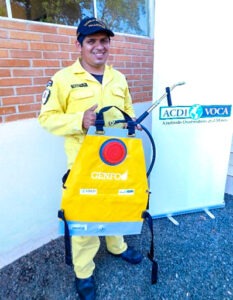
After the training, PREP granted the firefighters uniforms, equipment, and a radio communication system. This allows them to connect with the four municipalities and 10 communities targeted by PREP and to facilitate their response to emergencies.
Captain Alcides cannot hide his happiness for the equipment received. “During the latest service [call] we had during a forest fire in a eucalyptus plantation in the municipality of Maciel, we were able to use the extinguisher backpack, the fire bat, and the uniforms,” he said. “If you ask me how we used to fight these kinds of events, I tell you that we had to do it with equipment manufactured by ourselves and with the yellow uniforms we bought four years ago. It was quite rustic. Imagine that we had services of 12 or 18 hours, and after only two hours of raising this tool, we were already extremely tired.”
The department faces many limitations. While they have a dedicated space for the fire station, they lacked the funds for equipment. Thanks to community contributions, they raised funds to gradually improve their modest headquarters and received their first rescue vehicle as a donation. Today, four years later, they have added an ambulance, fire hydrant truck, and forest fire mobile hydrant. Volunteers are often on call weekday mornings, evenings, and 24 hours a day on weekends.
“This support strengthens and motivates us a lot to continue helping. The guys are very excited. Now they arrive at the station knowing that if there is a call, the service can be attended much faster.” — Captain Alcides Aguilera
“We are a nonprofit entity . . . The volunteers [used to] buy their uniforms with money from their own pockets,” Captain Alcides said. “Several months ago, I requested a gallon of oxygen for the ambulance from the local hospital, but I still haven’t received it.”
Some calls made them doubt their abilities. “I believe that during the last forest fire in Maciel, we wouldn’t have been able to do anything because we didn’t have the equipment and knowledge. We would have put ourselves in danger in vain,” he said. That has all changed thanks to the training and equipment they received.
Learn more about the Promoting Risk and Emergency Preparedness program.

